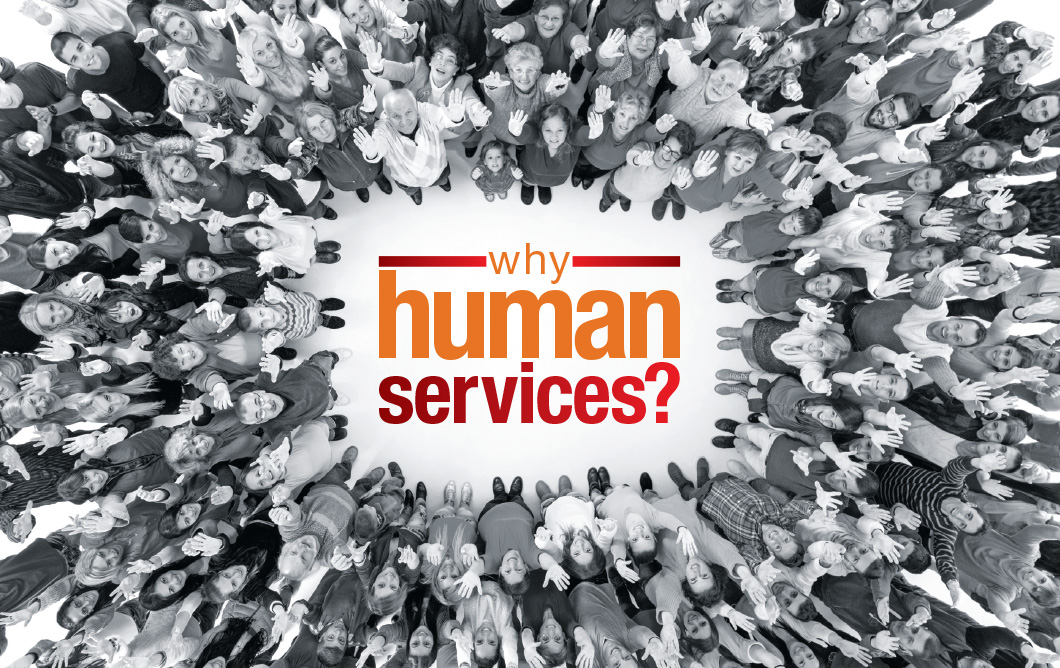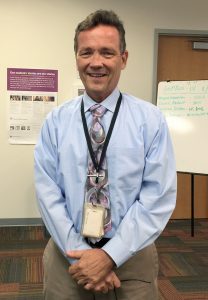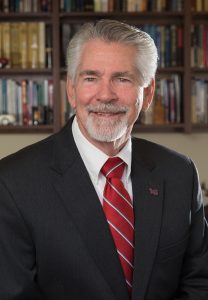
As a supplement to our print story on criminal justice and human services degree programs, faculty experts explain the benefits to a holistic approach for today’s policing.
Traditionally, criminal justice degrees have focused on the legal and tactical aspects of a career in law enforcement, from the streets to the courthouse. But nowadays, many educational institutions are adding human services concentrations and electives to both undergraduate and graduate programs. We asked faculty members from a variety of universities to discuss this evolution and how law enforcement professionals can benefit professionally and personally by learning more about the human aspect of police work.
Meet the Faculty
 DAN BARRY, program chair of Criminal Justice and Security, University of Phoenix, Las Vegas Campus, retired from the Las Vegas Metro Police Department as a captain, having worked in SWAT, intelligence, patrol and internal affairs.
DAN BARRY, program chair of Criminal Justice and Security, University of Phoenix, Las Vegas Campus, retired from the Las Vegas Metro Police Department as a captain, having worked in SWAT, intelligence, patrol and internal affairs.
 KIMBERLEY BLACKMON, Ph.D., is the program director for all criminal justice degrees at Walden University. She also worked as a police officer and detective for more than six years.
KIMBERLEY BLACKMON, Ph.D., is the program director for all criminal justice degrees at Walden University. She also worked as a police officer and detective for more than six years.
 JACK HAMLIN, J.D., department chair for National University’s criminal justice program, has served as a police officer, evidence technician and lawyer.
JACK HAMLIN, J.D., department chair for National University’s criminal justice program, has served as a police officer, evidence technician and lawyer.
 SCOTT HAWKINS, Ph.D., is the director for the Master of Arts in Human Services program at Liberty University.
SCOTT HAWKINS, Ph.D., is the director for the Master of Arts in Human Services program at Liberty University.
 DAVID HOPPE helped develop the Bachelor of Science in Child Protection and Juvenile Justice degree at Bellevue University.
DAVID HOPPE helped develop the Bachelor of Science in Child Protection and Juvenile Justice degree at Bellevue University.
 AMY TROUT, Psy.D., is an associate professor and program director for the Regent University human services program. She helped establish the various concentrations, including criminal justice.
AMY TROUT, Psy.D., is an associate professor and program director for the Regent University human services program. She helped establish the various concentrations, including criminal justice.
 SHERYL VICTORIAN, Ph.D., functions as both an adjunct professor at Southern New Hampshire University and assistant chief for the Houston Police Department.
SHERYL VICTORIAN, Ph.D., functions as both an adjunct professor at Southern New Hampshire University and assistant chief for the Houston Police Department.
Why is being knowledgeable about human services, such as mental health, trauma and juvenile justice, important to law enforcement professionals (LEPs) today?
BARRY: I can’t emphasize enough the importance of education, especially human services. Without the human services component, you are at a disadvantage — 99.9% [of what we do] involves people.
TROUT: In law enforcement, you’re dealing with stressed situations where you’re not getting the best version of the people you’re meeting. That makes it more important to have that foundation of a good working knowledge of people and how to work well with them in light of situational barriers.
HAWKINS: We discuss how when people are anxious, fearful or uncertain, their behavior may escalate or increase irrationality. Human services can help police professionals in recognizing the signs and remaining calm themselves so they can move to desired outcomes of their own behavior that are more likely to produce desired outcomes for the situation.
VICTORIAN: Human services education in law enforcement is very important. It teaches us how to deal with victims and address the needs of victims. It also shows that law enforcement professionals have a compassionate side.
HAMLIN: Not all crime necessarily involves criminals. What crimes do have in common is a certain spiral of shame with that individual. If we can break that cycle and get them back up to operational levels, maybe we will see a drop in crime like we’ve seen over the past few years.
HOPPE: Adolescents who are incarcerated, who have had traumatic childhoods, psychopathology … grow up and go into the adult system. If we could intervene earlier, then maybe we could be lowering the adult prison population.
Recently there’s been reporting on how often police and corrections officers encounter individuals struggling with mental illness. Do human services courses help prepare LEPs to more effectively cope with this population?
BARRY: A high percentage of what police deal with is people suffering mental illness. Here at the University of Phoenix, we hosted a symposium [in] partnership with human services on how to de-escalate situations. As a former SWAT officer, I can tell you firsthand, crisis negotiations work to deescalate individuals. You spend the time to talk and de-escalate individuals and maybe bring them to medical professionals if they need it. We don’t need to arrest and make them go to jail.
BLACKMON: That’s so critical right now in the criminal justice field. We are adding that element to our undergraduate and master degrees. We’ve gone through our academic programs to review it with experts to change certain elements, such as crisis identification and intervention.
Can an education in human services improve LEPs’ wellness?
TROUT: They’re dealing with hard situations, and oftentimes, you do not have the opportunities for debriefing. It’s good to know how to do a self-assessment of how well you’re functioning in light of job stress. That can help prevent burnout and let you know how you can get resources.
VICTORIAN: Officer wellness is a big issue in law enforcement right now. There is a high percentage of suicides in the profession. A background in human services education does allow officers the opportunity to be able to identify within themselves when they’re struggling and recognize they may need help. If they’re not properly dealt with, then our behavior could lead to destruction to our careers and families.
How would you advise LEPs who may be considering studying human services to advance their professional development?
HAWKINS: Determine if you’re looking for knowledge in a niche area. Do you want more knowledge of substance abuse and how different substances affect individuals? Would you like more knowledge in terms of resiliency and working with the military, understanding triggers of PTSD and knowing what the cues are?
HAMLIN: Look at what your department needs and the direction of law enforcement you want to go. Also, consider the practical aspects, such as the time and cost required to obtain your degree.
TROUT: Look at the quality of instruction and instructors. Who is directing the program and teaching the classes? Are these people you can grow through?
For more about these programs, read “The Human Touch.”




